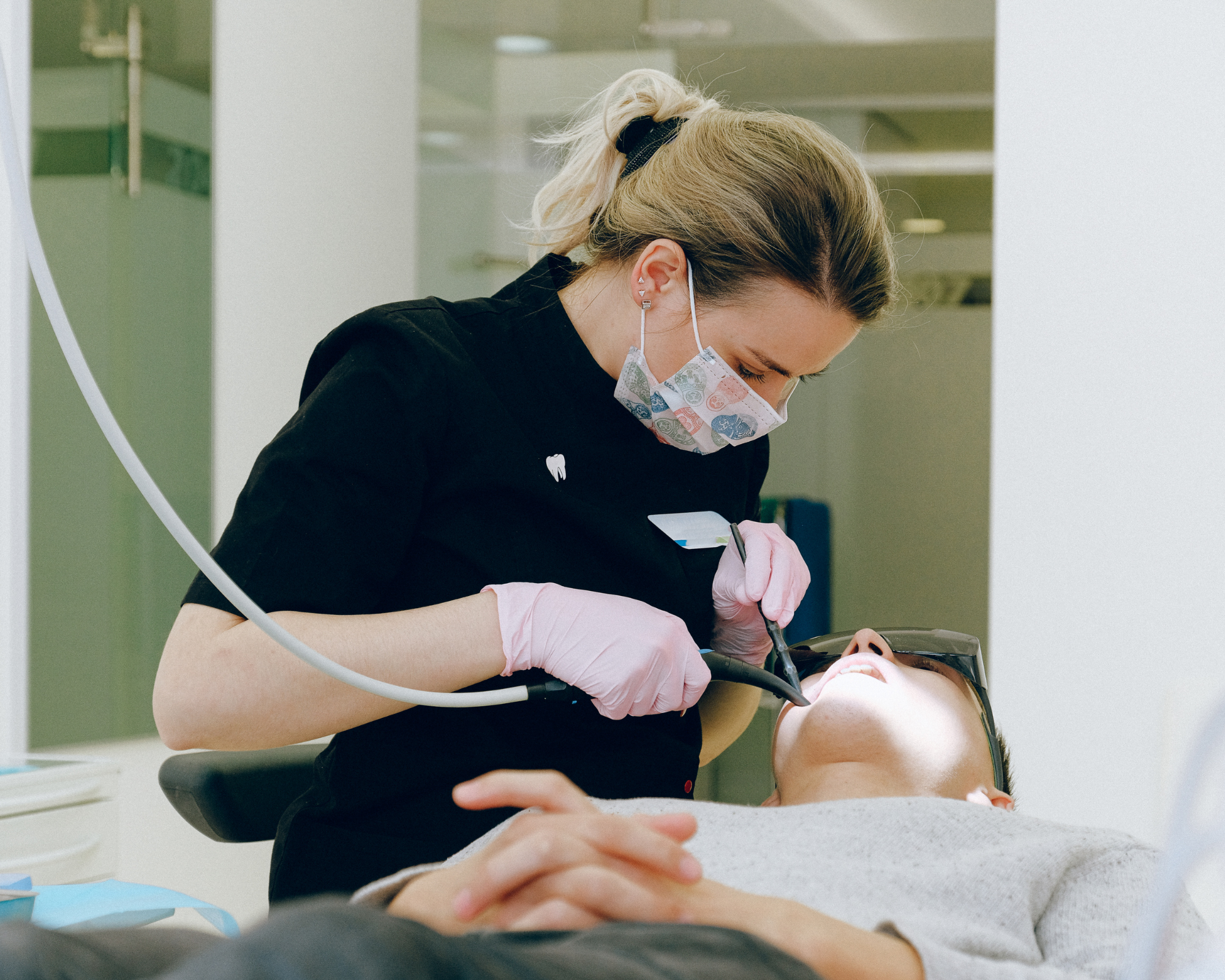Periodontal
Disease
When you go to the dentist expecting to just get your teeth cleaned, and you hear the words “periodontal disease”, don’t let it scare you. We see it every day! Did you know that 47% of adults aged 30 years and older have some form of periodontal disease? Let us help you understand what it is, how you treat it, and what to expect.
What is Periodontal Disease? Periodontal literally means “around the tooth”, so periodontal disease refers to the infection and inflammation of the gums, ligaments, or bone that surround your teeth, and can vary in severity. As the infection grows, your gums can detach from the teeth, causing mobility, and in worst cases results in loss of teeth. Periodontal disease has also been linked to increased risk and prevalence of heart disease and other medical issues.
What causes Periodontal Disease? There are a lot of causes of periodontal disease but the most common are:
Poor hygiene – without daily brushing & flossing, and annual visits to your dentist, bacteria can build up underneath the gumlines… making it nearly impossible to remove without the assistance of a licensed hygienist.
Smoking or chewing tobacco
Hormonal changes
Recreational drug use, such as smoking marijuana or vaping
Obesity
Dry mouth (caused by certain medications)
Certain diseases, such as diabetes, rheumatoid arthritis and Chron’s disease
How can I treat it? If caught in the early stages (gingivitis), it can be treated by more frequent cleanings at your dental office. In some more advanced cases, a procedure called Scaling & Root Planning (SRP) is needed. This is completed by a licensed hygienist, and it is the removal of plaque, bacteria, and tarter (calculus) from underneath the gumline. This sometimes requires local anesthetic for the comfort of the patient and is completed in several visits. The goal of treatment is to prevent further deterioration of your gums and gain attachment, which is a sign of gum health. Once treatment is completed, a dentist will recommend a cleaning schedule that is appropriate – usually every 3-4 months. In very advanced cases, gum surgeries may be required to treat the periodontal disease.
Periodontal disease is treatable, and it is up to the patient to be compliant with home care and follow-up after procedures for best outcomes. With dental intervention and excellent hygiene care, it can be controlled and progression can be stopped!
At Corbin Dental, we are passionate about educating our patients on all dental procedures. It is important to understand your dental health! Our staff is always welcome to answer any questions you may have.
Thank you for choosing Corbin Dental where we provide world-class care with hometown service.
For more information on the content provided check out:
https://www.cdc.gov/oralhealth/conditions/periodontal-disease.html
https://www.mayoclinic.org/diseases-conditions/periodontitis/symptoms-causes/syc-20354473



